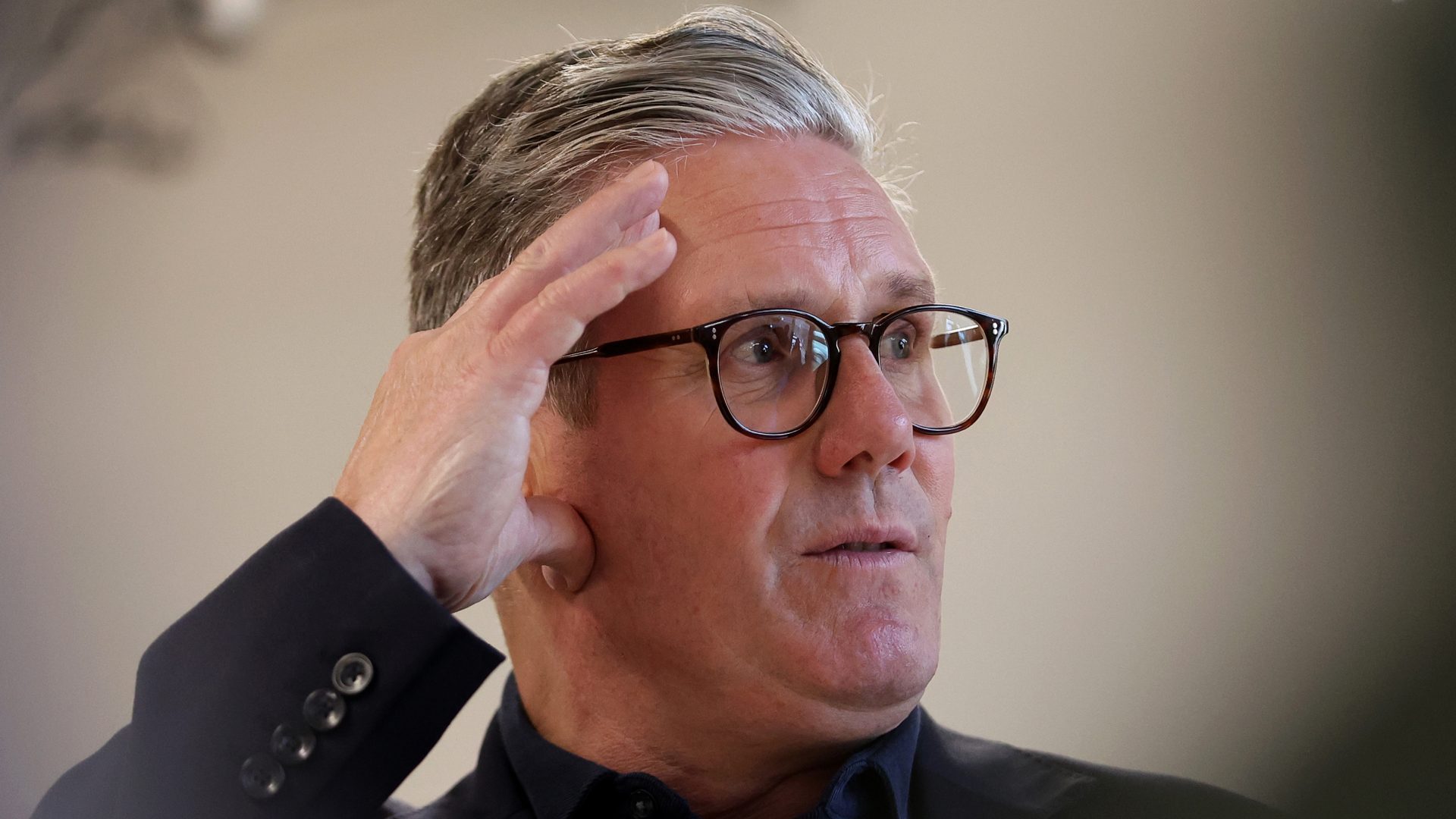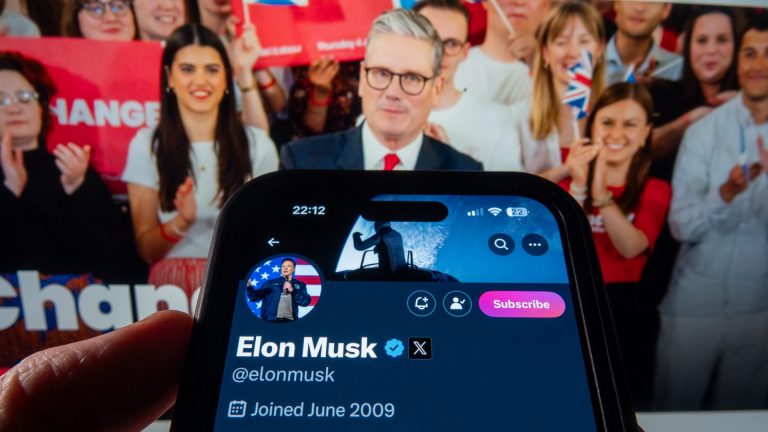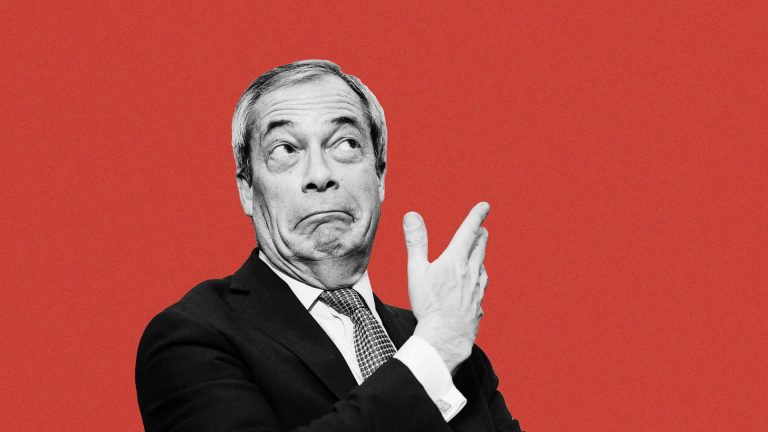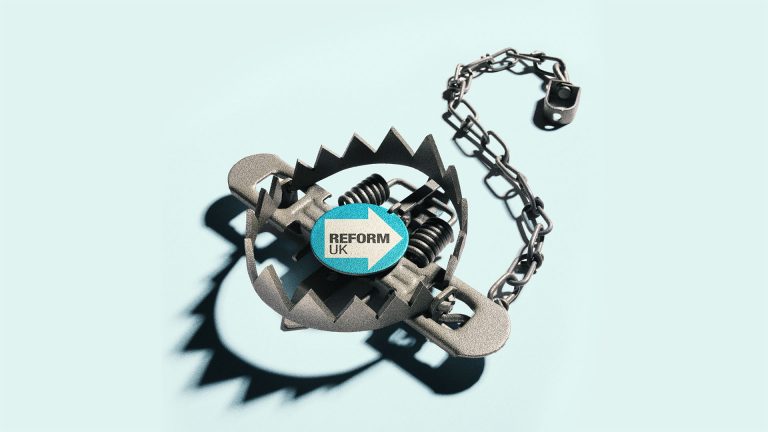Losing an argument can become a habit. Keir Starmer might be on the verge of a triumphant election landslide victory but in relation to Brexit he is a serial loser.
Starmer backed Remain in the 2016 referendum and advocated a second referendum during the 2019 general election when Labour was slaughtered. He was shadow Brexit secretary.
That was not the end of the matter. Soon after that Starmer became leader of his party and opted for silence on one of the biggest issues of our time. There is no bigger admission of defeat than silence.
A disastrous Brexit deal was negotiated by two darkly comical figures, Boris Johnson with his shallow wayward attention span and his pathetic courtier, Lord ‘Frosty’ Frost. In response, Labour backed the Brexit deal in the Commons and that was it. Starmer has not raised the dire consequences at Prime Minister’s Questions, nor made a speech on the theme. Brexit does not feature in the party’s campaign grid.
Can Starmer break his timid, fearful silence if he wins? Can he find the language to persuade, to become a political teacher on what is still the most highly charged issue of our times?
Brexit has become tied up with national identity and emotive themes such as “control” and “betrayal”, a term that a lot of voters respond to even when they are not being let down.
On the hopeful side, Starmer will have a lot going for him. Polls suggest Brexit is now unpopular. The costs are evident on a daily basis and will become more visible this autumn when further border checks are required generating further insane delays.
If the polls are correct, Starmer will win big. His cabinet will consist entirely of those who voted Remain in 2016, a big cultural shift from the deluded Brexiteers who have sought to pull levers from mighty cabinet posts only to resign when they could not do so and to blame everyone else for their failure.
The ministerial roll call of shame is long, including Frost, David Davis and Jacob Rees-Mogg (briefly and hilariously the secretary of state for Brexit opportunities). They will all be battling it out in opposition, arguing that Brexit has failed because the Tory government did not make the most of the glorious opportunities even though they were directly in charge of doing so.
This should be a dream scenario for an incoming government that knows Brexit has been a disaster and undermines its make-or-break quest for elusive economic growth. But the potentially benevolent situation has become more complicated with the re-emergence of Nigel Farage as leader of Reform and his party’s candidate in Clacton. Farage will almost certainly win and finally have the House of Commons as one of his many platforms.
Such a development should not be a threat to a newly elected and confident government. Farage is not interested in policy detail and runs a mile from taking any responsibility for the consequences of his actions, resigning as UKIP leader the day after the 2016 Brexit referendum. He now claims vaguely that Brexiteers have been betrayed by the deal he showed no interest in shaping.
Indeed Farage’s wider policy agenda threatens the interests of his target voters, the dismantling of the NHS for an ‘insurance system’ imprecisely described, huge spending cuts and a migration policy that will make much worse the acute labour shortages that undermine public services.
Yet worryingly Farage’s policy agenda has never been a problem for voters who depressingly pay only the most fleeting interest in politics. At most, they catch an argument, a ‘story’ that however superficial might make sense to them.
Farage will never be interested in detail but he can frame arguments in his sleep. Starmer is the opposite. He has a dogged mastery of detail but is not a leader who lays out accessible narratives from which more daring policies can arise. This applies especially to Brexit.
If Farage is in the Commons the populist right will have a potent voice. However big Labour’s majority there is a risk that Starmer’s caution on Brexit will continue in power however much he knows the deal negotiated by Johnson and Frost is a disaster.
A more agile Labour leader, less dependent on mouthing the latest thoughts from focus groups, could have turned the Johnson/Frost deal into a vote winner for Labour. The entire negotiating sequence, ending with a dense deal being agreed on Xmas Eve 2020 could and should have been portrayed as a betrayal of Brexit voters.
Probably Johnson did not read the entire text as he prepared for his Xmas celebrations and when he was also half-focused on the pandemic. Frost was a mid-ranking diplomat who had moved on to work for the Whisky Association.
Imagine what a Harold Wilson or Tony Blair would have made of this material, the wit they would have deployed to highlight the inept absurdity of this modern-day Laurel and Hardy negotiating the most important deal for the UK since the second world war? With their deft use of language, they would also have created more space to respond to the ongoing Brexit crisis in government.
Instead, Starmer has paid implicit respect to the Brexit deal by not raising it and leaving not even a millimetre of space to rejoin the customs union let alone the single market. In the meantime, it is Farage who has been on the rampage.
Vaguely but confidently Farage argues that Brexit would have been the paradise he and others portrayed in the referendum if only the deal had been even harder, preferably no deal at all. He does not explain how the UK would have flourished in such circumstances.
It does not matter. Like Johnson, he claims that he is leading a “people’s revolt”. That sounds fun and purposeful in a country where nothing works, even if Farage is one of the agents of the chronic dysfunction.
Quietly and below the radar Starmer has been making plans to move a bit closer to the biggest market on the UK’s doorstep. The shadow cabinet office minister, Nick Thomas Symonds, has spent much time travelling around EU capitals identifying areas of mutual benefit. There is behind-the-scenes talk of regulatory alignment opening the door slightly to the single market.
Harold Wilson’s biographer, Thomas Symonds appreciates as few do Wilson’s sensitive brilliance and guile in guiding a divided Labour Party towards the 1975 referendum in which he secured a big majority for continued membership. There will be no referendums or membership of the EU under Starmer but Symonds has hopes of some significant improvements. There is the possibility of some early repairs after the self-destructive madness of recent years.
But enter Farage, the latest leader of the people’s revolt, and possibly part of an historic realignment of the Conservative party. Backed up by the right wing newspapers that continue to exert a disproportionate influence on the BBC, he would leap on any discreet attempts at moving a little closer to the EU and claim with the support of what is left of the right wing of the Tory party that “Starmer is reversing the will of the people”.
The Tory papers, having suffered the setback of the election, will find their voice again. This will be an intimidating combination.
New Labour with its big landslide victories in 1997 and 2001 worried a lot, justifiably, about the Tory papers. The Tory papers in alliance with the new member of parliament for Clacton could be more intimidating.
But while loud, they can be easily beaten if Starmer and his top team discover the language to swat them to one side.
Starmer has used the symbols of patriotism with dogged determination. He rarely speaks without a large Union Jack nearby. But the language of patriotism is even more powerful in winning arguments.
If he insists he is acting in the country’s interest as Wilson did when he “renegotiated” Britain’s terms of membership – and frames Farage and the populist right as the ones letting the country down – he has a patriotic narrative. Who is acting on behalf of “the people”, a government acting in its interests or Farage claiming to lead a “people’s revolt”?
After a long silence, an act of political teaching is required – difficult with the British media but not impossible, given those polls that suggest most voters recognise Brexit to be a mistake.
The UK will be taking back more control by returning to its businesses the freedom to trade without an excess of friction and for people to travel without the stifling checks and queues that have become emblematic of the loss of control arising from the Johnson/Frost Brexit. Speedier supply chains mean cheaper prices to help with the cost of living crisis.
There will be the ‘freedom’ to have access to cheaper goods. Easy, accessible arguments are there. Farage will be relentless in his claim of betrayal. They will work if he is allowed to make his assertions unchallenged. There is no need to continue losing the argument over Brexit after July 4.
Steve Richards presents the Rock N Roll Politics podcast. His Rock N Roll Politics show will be live at the Edinburgh Festival from August 11









